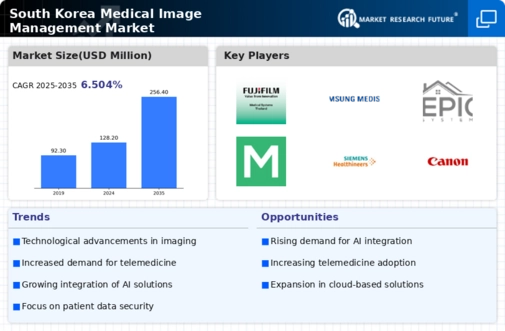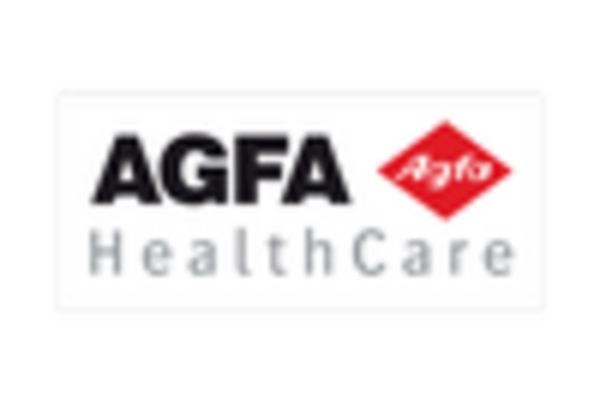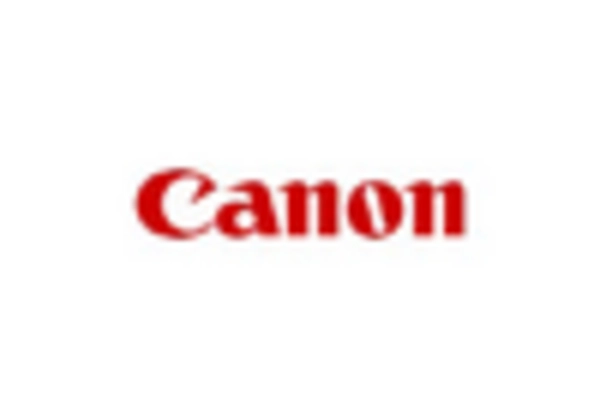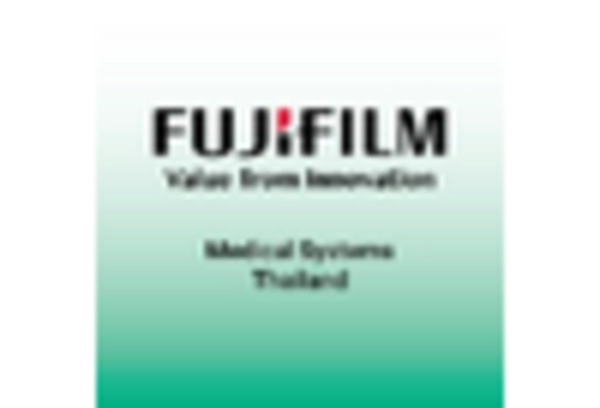Rising Demand for Diagnostic Imaging
The medical image-management market is experiencing a notable increase in demand for diagnostic imaging services in South Korea. This surge is primarily driven by the growing prevalence of chronic diseases and an aging population, which necessitates advanced imaging techniques for accurate diagnosis and treatment planning. According to recent statistics, the number of diagnostic imaging procedures performed annually has risen by approximately 15% over the past five years. This trend indicates a robust growth trajectory for the medical image-management market, as healthcare providers seek to enhance their imaging capabilities to meet patient needs. Furthermore, the integration of advanced imaging technologies, such as MRI and CT scans, is likely to further propel market expansion, as these modalities provide critical insights into patient health, thereby improving clinical outcomes.
Growing Emphasis on Patient-Centric Care
The medical image-management market is witnessing a shift towards patient-centric care. This shift is influencing the adoption of advanced imaging technologies. Healthcare providers in South Korea are increasingly focusing on delivering personalized treatment plans that rely on precise imaging data. This trend is driven by the recognition that accurate imaging is essential for effective diagnosis and treatment. As a result, the demand for sophisticated image-management solutions that support patient-centric approaches is on the rise. Market analysis indicates that the emphasis on patient outcomes is likely to propel the medical image-management market, as providers seek to leverage imaging data to enhance the quality of care and improve patient satisfaction.
Technological Advancements in Imaging Systems
Technological advancements play a pivotal role in shaping the medical image-management market. Innovations in imaging systems, such as the development of high-resolution imaging modalities and portable imaging devices, are transforming the landscape of medical diagnostics in South Korea. The introduction of AI-driven imaging solutions is enhancing image quality and diagnostic accuracy, which is crucial for effective patient management. Market data suggests that the adoption of these advanced technologies has led to a 20% increase in the efficiency of imaging workflows in healthcare facilities. As hospitals and clinics invest in state-of-the-art imaging equipment, the medical image-management market is poised for substantial growth, driven by the need for improved diagnostic capabilities and operational efficiencies.
Regulatory Changes and Compliance Requirements
The medical image-management market is significantly impacted by regulatory changes and compliance requirements in South Korea. Recent updates to healthcare regulations are aimed at improving the quality and safety of medical imaging services. These changes necessitate that healthcare providers adopt advanced image-management systems that comply with new standards. As a result, there is a growing demand for solutions that not only enhance imaging capabilities but also ensure regulatory compliance. Market Research Future suggest that the need for adherence to these regulations is likely to drive investment in the medical image-management market, as providers strive to meet compliance requirements while maintaining high standards of patient care.
Increased Investment in Healthcare Infrastructure
The medical image-management market is benefiting from increased investment in healthcare infrastructure across South Korea. Government initiatives aimed at enhancing healthcare facilities and expanding access to advanced medical technologies are contributing to market growth. Recent reports indicate that public and private sector investments in healthcare infrastructure have surged by 25% over the last three years. This influx of capital is enabling healthcare providers to upgrade their imaging systems and implement comprehensive image-management solutions. As a result, the medical image-management market is likely to see a significant boost, as improved infrastructure facilitates better patient care and enhances the overall efficiency of imaging services.
















